By Vanessa Broadbent (The Cascade) – Email
Print Edition: January 28, 2015
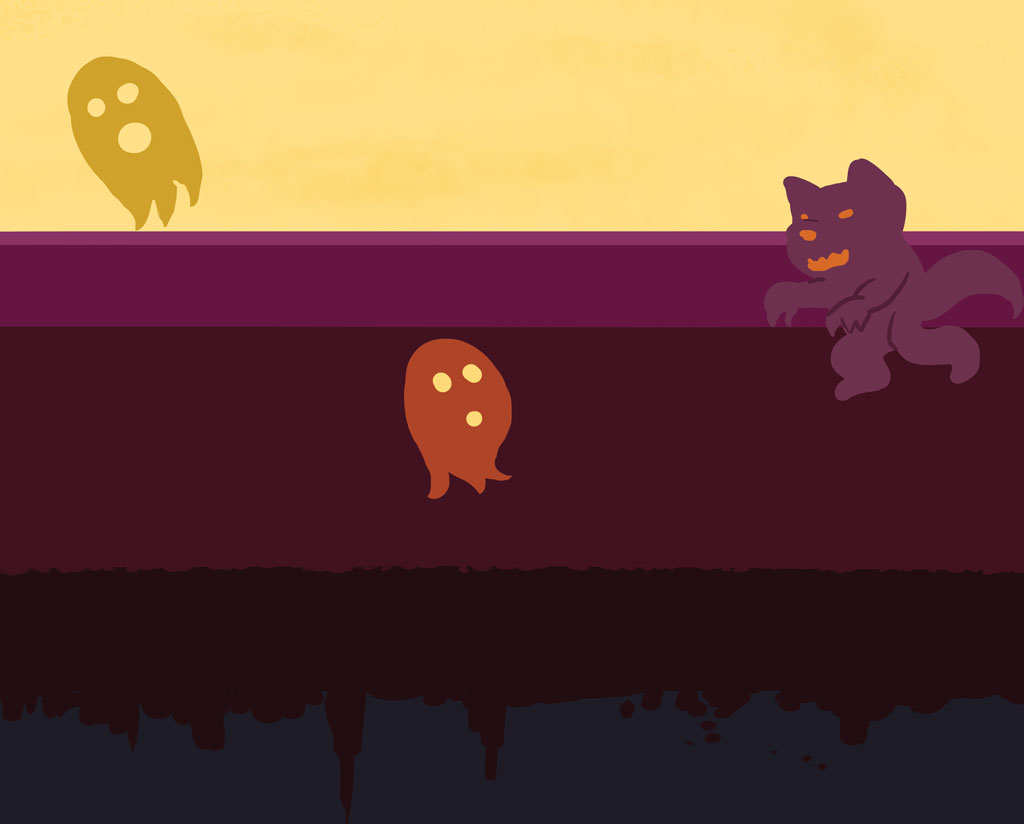
Every winter semester, the English department at UFV welcomes a Canadian author to be writer in residence. The writer in residence works on her writing during her stay at UFV, as well as helps students with their own. She provides inspiration and guidance by visiting creative writing classrooms, as well as working one-on-one with students.
This year’s writer in residence is young adult (YA) author and poet, Emily Pohl-Weary. Emily has written six books and a comic book series, and has published her own literary magazine. Some of her most popular works include Not Your Ordinary Wolf Girl and A Girl Like Sugar, and Ghost Sick, her newest collection of poetry, will be released in February.
The Toronto native has just finished a writer in residence position with the Toronto Public Library and has travelled across Canada to share her writing wisdom with UFV students.
What’s your writing process or method like?
I’m a big believer in outlining. I tend to do a certain amount of writing on a new project when I get inspired, then as soon as it starts to feel like I have too much in my brain I revert to the outlining process, go back and look at what I’ve written and then figure out where I need to go. I don’t feel locked into the outline, because I can always change it, but it really helps me get where I need to go.
Where do you do your writing?
I’ll write anywhere. I’ll write at home, I’ll write at a café. I’ve been known to write at the public library and at the mall, or on the bus. It always just depends on when I have time and where I can grab some space in my head.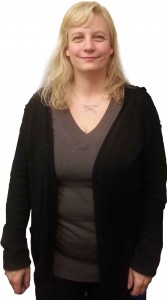
Why UFV? What appealed to you about this school in particular?
I was really interested in this area, BC, and frankly, last winter in Toronto felt like it lasted a million years, so I wanted to try living out here. I’ve heard the area is beautiful and I’m so excited to be able to explore it. It felt like a good fit when I read about the residency and I found out more about it. It feels like the right place for me. The day I got on the airplane it was really early in the morning and -16° C. The wind was blowing, it was snowy, and I thought, I am going to the right place.
What do you hope to bring to students that is unique?
I love working with young people. I feel as if it’s a real opportunity for me to get inspired, and a lot of what I write is aimed at younger readers, so it’s exciting to me to work with people who are closer to the age of the characters that are in my books. I hope that I can share a bit of a — well, I think of myself as a Jackie-of-all-trades in terms of writing. I’ve written biography, poetry, and novels and edited a superhero anthology and wrote a screenplay, so I feel like I can bring some degree of authority to discussions about any of those genres. I’ve actually written graphic novels as well. I think pretty much anything that students are into writing, I may have had some experience writing or editing in the past. I’ve also worked on textbooks. My experience is broad and could cover a lot of different interests.
How would you define the young adult genre?
Let’s see. Well, it’s usually aimed at readers between the ages of 12 and 19. The narrator, the main character, has to be from that same age group. It can’t be an adult talking about the teenage years, so if an adult is narrating in flashbacks, it’s usually not a teen novel.
A teen novel is actually through the eyes of teenagers, so the world they inhabit is the world a teenager would inhabit and the action has to be driven by young adults. It has to be driven by young characters.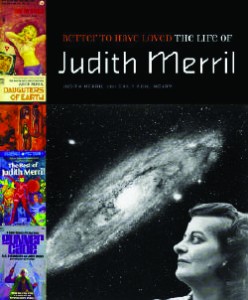
There may be some other, more or less arbitrary rules about what makes YA, but people are always breaking them, so I’d say those are the ones that really have to stand.
I think the line is really blurry. It’s hard to know because you can read a book that’s for adults narrated by a kid. It happens occasionally. I guess the common wisdom is there might be less swearing, less sex; the world would be one of teens. All the action, all the plot movement is driven by teenagers, not by adults and their lives.
Sometimes thematically there are things that teens wouldn’t be as interested in. I wrote one novel for adults called A Girl Like Sugar but that, I think, would now fall into the whole new category of new adult, which is essentially 18 to 25. Those were the people who were reading A Girl Like Sugar, and I guess also the ages of students here at UFV. That’s the oldest novel I’ve written. I think my reading tends to stay fairly young, and it has a kind of simplicity to it. I would guess that also distinguishes a YA novel from an adult novel — the vocabulary. Editors tend to take out words with too many syllables. There’s a kind of drive to de-complexify the language in YA novels that you don’t see in adult novels.
What made you want to write YA fiction?
It’s funny you should ask that. I feel like I write YA fictions in a large part because I have some kind of drive to rewrite my teenage years. I had a hard time in high school and I feel like I almost became the anti-me. I think this is my chance to write girl heroes and guy heroes who are the kinds of teenagers I wish I could have been, and are the kind of people who are a little more self-assured, a little more knowledgeable about what they believe, and a little more confident.
If you couldn’t be a writer what would you be?
A reader. I think becoming a writer was a process of elimination for me. I kept looking around and thinking maybe I would be this or I would be that, and I kept coming back to writer. For a long time I wanted to be Jane Goodall — I wanted to be an anthropologist who went off and lived with the monkeys. I felt that I could do that. I wanted to be a private detective. These are all things that I think really brought me back to writing. Studying other people, trying to learn new secrets, and ultimately writing allowed me to be all of those things at once.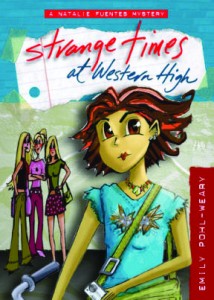
Have you ever written anything you are not proud of?
All the time. I think as I become older, it’s actually harder for me to let go of things. I have to strive for perfection, but it’s important to be able to let go. It’s important to say, that’s where I was at that time and it’s okay. So if you spend too much time kind of writing and rewriting you end up not getting anything finished.
Sometimes you just don’t have the ability to make it better so you let it go. You just say, that’s where I’m at, that’s where this piece of writing has to be. I think the beautiful thing about being a writer is you can never attain that sense of “I finished, I got where I want to be, I don’t have to ever work on it again.” There’s always another space you can reach for in terms of your skill and your ability and your interest.
Young adult fiction and poetry often don’t seem as read in a university audience. How will you engage students at UFV in your writing?
I feel like I’ve always been a bit of an outsider saying, “Hey, pay attention to this. It’s just as exciting, it’s just as literary, it’s just as beautiful in terms of the writing.”
My maternal grandparents both wrote science fiction, so I can see them and how they related to the literary world, as science fiction writers are never considered as real writers in the same way that a literary fiction writer would be.
To me, there’s an ability to play with form and genre and words in the less self-conscious genres.Each project has its own form that it needs to be in, so if I can figure out what that form is, whether it’s a graphic novel or a novel or a collection of poetry, I just have to go with that. I think the main thing is to have fun, right? Have fun with what you’re doing, and to feel creatively inspired or terrified or whatever it is that makes you write.
I hope people might be able to see that there are very different kinds of writing. If you feel like you’re not drawn to Hemingway or Shakespeare or even Alice Munro’s short fiction, which we’re often reading, then look beyond those and try to write things that do speak to your daily life, and that do move you in a way to feel capable of finishing a book or project.
I’ve noticed that some of your writing has werewolves and other fantastic characters. Why did you choose to take that route?
I read a lot of teen fiction as part of my job and I feel like often monsters are male. They continue to be male to this day, so when I was writing my female werewolf, I was really conscious of things like how frowned-on teen girl rage, teen girl anger or aggressiveness is, and I thought, werewolves are the ultimate epitome of this kind of internal rage bursting out of us. So, what would happen if you took this cute little 18-year-old girl and gave her inner issues, her inner rage, a furry, physical manifestation? It was really fun to figure that out, to make her go from a shy kind of reclusive musician to someone who wants to be in the spotlight and is about to eat her boyfriend unless someone intercedes. It was a lot of fun to play with the metaphor and the whole werewolf mythology.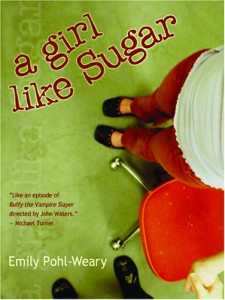
I heard you’re teaching a class. How is it going so far?
I’m teaching Intro to Creative Writing [ENGL104]. I’m having fun already. I really love working with young writers and there’s this moment when they’re really into something you’re teaching where their faces just light up and you think, yes, I managed to bring something in or talk about something that will light up their minds. It’s one of my favourite things to do. I just finished a residency in Toronto through the Toronto Public Library System where I was working exclusively with writers between 12 and 19. It’s so much fun because you’re catching people at an age where they’re just starting to figure out what it is they love about writing and why they want to write and what’s important to them separate from, say, their families or from their peers. To me, it’s just a great opportunity to open people’s minds a little bit.
This interview has been edited for length and clarity.


